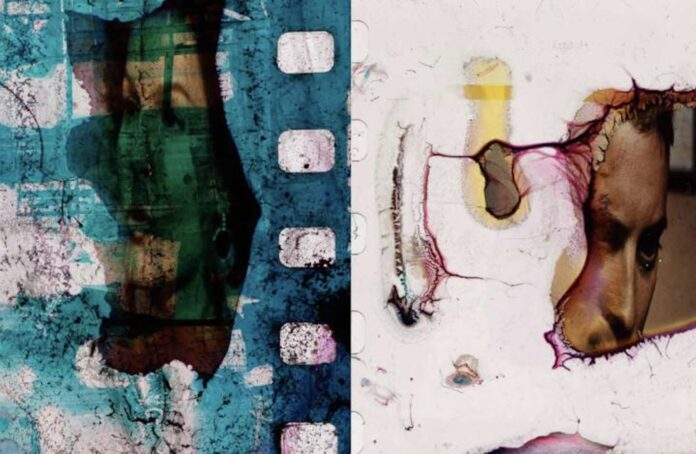Tributes to a couple recently deceased filmmakers of note and a selection of newish Mexican cinema are highlights this week from two among the Bay Area’s remaining institutions dedicated to experimental, repertory and arthouse work.
When San Francisco Cinematheque hosted “Ritual Obsessions: Three Nights of Luther Price” in mid-2000, the impact was revelatory, overwhelming, and a little scary. Price—a pseudonym, and not his first or last—invited you into a world so private that its sharing seemed almost obscene. It was duly said that he refused to duplicate his films, preferring to tinker with them until the prints gave out. They mapped a psychological space redolent of early David Lynch, Jerome Caja, and Diane Arbus, for starters—the stuff of home and family rendered surreal, threatening, poetical, demented.
Their abstractions wove home movies and other primarily “found” footage into visual PTSD haikus, using repetition like a tacit indictment. It is hard to convey the singular imprint on one’s brain made by something like the notorious Super-8 Sodom (1989), which turns fragmented old gay porn loops into kind of purgatorial limbo, or the prior year’s Warm Broth, whose 34 minutes (set to a battery-warped talking doll’s stock phrases) transform a series of archival images into something akin to a psychotic break.
The unmistakable musk of autobiography was somehow present in every frame; the implicit themes onscreen were apparently borne out by the artist’s offscreen reality, which encompassed no lack of eros, battery, and masochism. (He died in 2020 at age 58 from health issues complicated by bad reactions to antibiotics taken after he’d been bitten by one of the near-feral cats he kept in his tiny inherited Boston-area home. He’d also suffered through much of the preceding 35 years, due to lasting effects of a bullet wound incurred in 1985 in Nicaragua.)
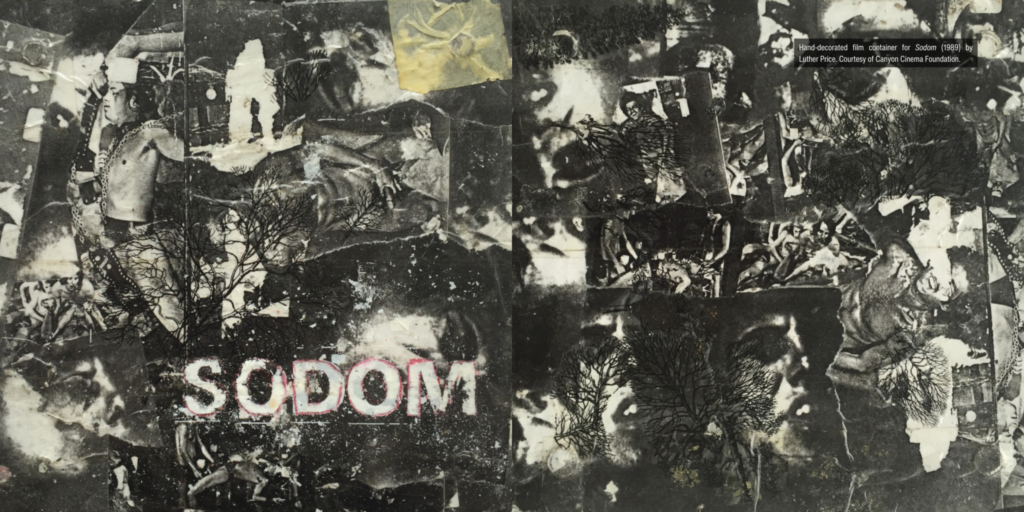
It was riveting and unsettling enough just to see these films in advance of their public screenings. I wasn’t sure I wanted to experience the man himself, who accompanied those screenings—as he had some prior ones in SF, then again in 2012. His live performances sounded grotesque and harrowing. In the 21-page Cinematheque-Canyon Cinema publication Luther Price in San Francisco: A Remembrance, one is described thus: “The space began to resemble the disturbed and private boudoir of a very exacting drag clown.” In the book-length New Utopia and Light Fracture (VSW Press), also new, it is recounted that a week-long workshop on handmade film he held as a visiting artist in 2017 Rochester, NY was “viscerally affecting,” with participants bursting into tears and screams, some refusing to discuss the experience afterward.
But in Price’s pain there was beauty, and vice versa. The aforementioned tome preserves slides (his apparent medium of choice in later years) that are the psychedelic result of collage, emulsion, decay, even burying film in soil. They are gorgeous—and, natch, haunting. Those two titular original projection shows will be shown at a first Cinematheque show this Sun/24 at CounterPulse in the Tenderloin (more info here), along with the aforementioned Sodom and a second short, (what else but) Clown. The second half of two-part Remembering Luther Price will take place on Thurs/28 at Oakland’s Shapeshifters Cinema (more info here), featuring 2005’s Dipping Sause (sic) and two works he made under the name Tom Rhoads. The new print publications will be available for purchase at both events.
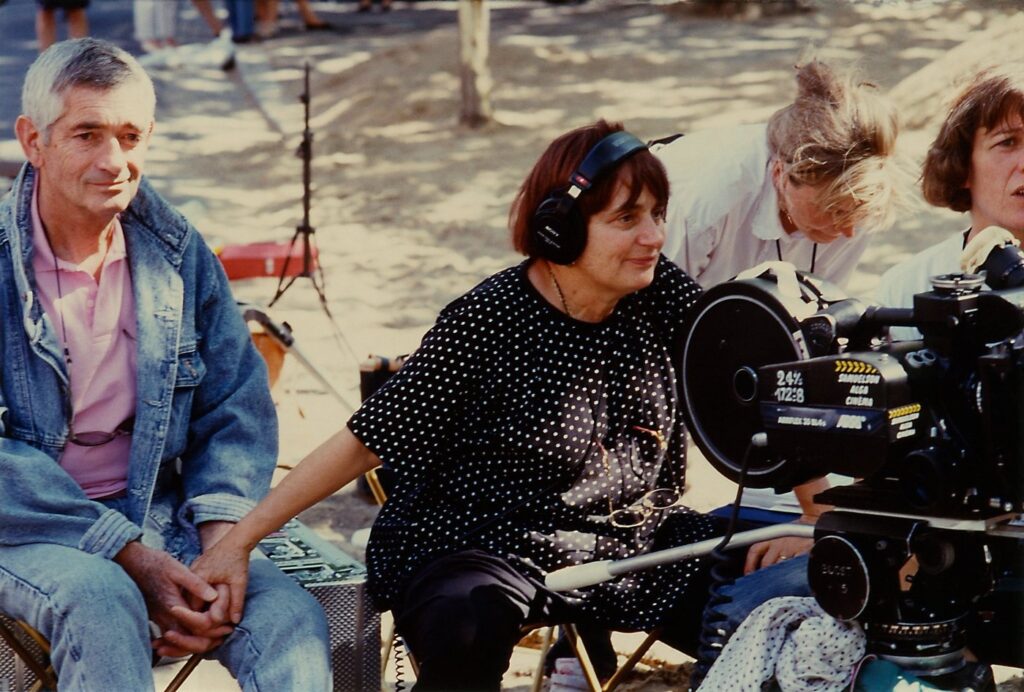
If Luther Price’s indelible art often felt like a channeling of demons, the work of the director (though she also worked in other media) spotlighted by a BAMPFA series starting this week by contrast seemed primarily to celebrate life, creativity, and other people. ”Viva Varda!” provides a substantial if incomplete overview of screen endeavors by Agnes Varda, who died in 2019 at age 90.
It begins this Sat/23 with Pierre Henri-Gilbert’s new documentary, also entitled Viva Varda!—the first such career stock-taking not made by the late Brussels-born, Paris-based lady herself. She was, indeed, much inclined towards such public self-reflection, although never of a pompously egotistical kind. The documentaries that occupied her later decades probed the past (including that of late husband Jacques Demy) to preserve it, but also roamed in endless playful search of local color, youth, and new collaborators (like artist JR in 2017’s Faces Places, which ends this series on May 5).
While the star auteurs of the nouvelle vague were almost entirely a male roster, Varda arguably commenced the entire movement with 1955’s La Pointe Courte (playing this Sun/24), an inventive micro-budget feature that preceded famous 400 Blows, Breathless, and Hiroshima Mon Amour by several years. (Alain Resnais was one of its editors.) It has Silvia Monfort and Philippe Noiret as a long-distance couple pondering whether to separate or further commit during a long day’s wander around a port town. Their relationship drama is intercut with glimpses of local nonprofessionals playing themselves—mostly fishermen and their families, frequently at odds with law-enforcing game wardens who’d take the bread from their mouths.
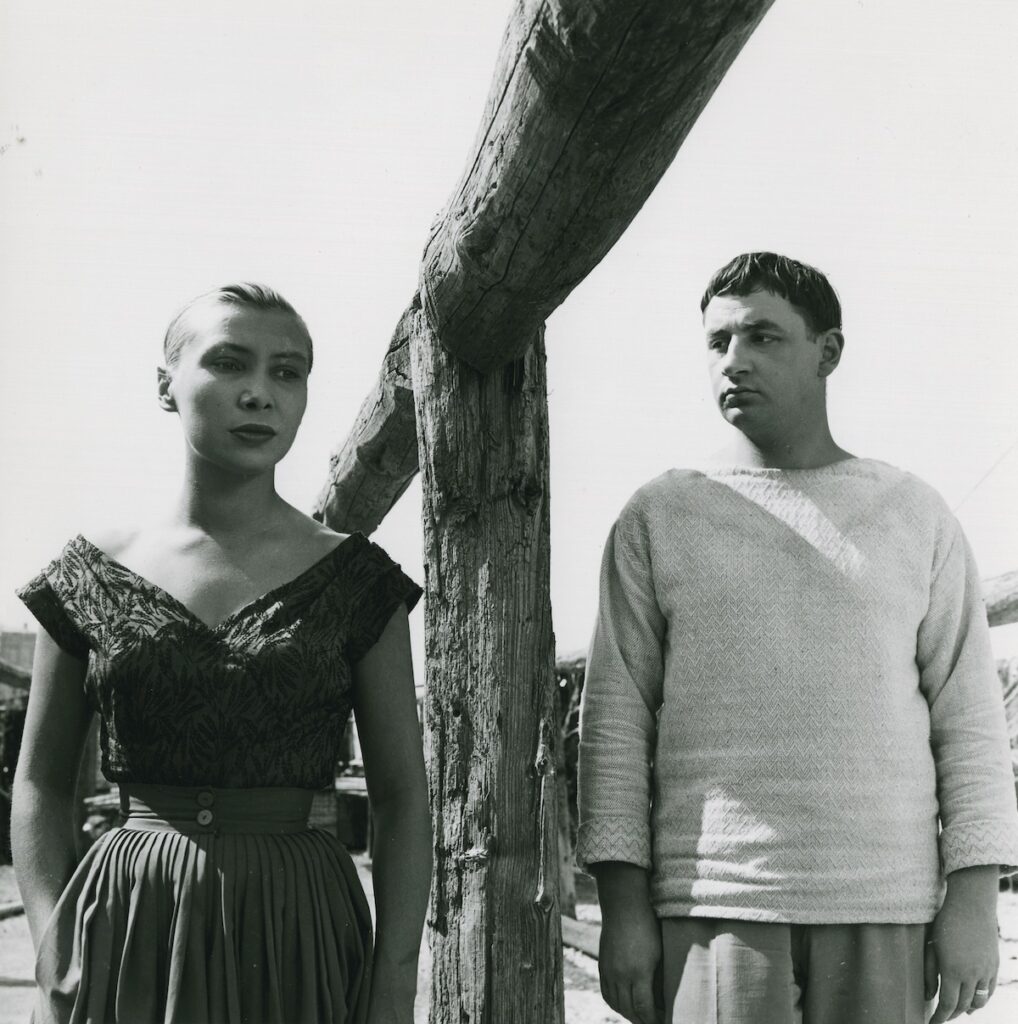
Varda made numerous shorts, collected in two programs here (on March 31 and April 20), but not another narrative feature until 1962’s Cleo From 5 to 7—another quasi-nonfiction construct meant to unfold in something like “real time.” Chronicling a tense interlude in the life of a pop star (Corinne Marchand), as she waits for a medical diagnosis, it was an innovative, widely seen success. The BAMPFA series has two later such efforts: 1965’s Le bonheur, a highly stylized critique of gender norms and marriage; and from two decades later Vagabond, a head-on portrait of a woman vagrant (Sandrine Bonnaire) who vehemently refuses all such social conformities.
On May 5 there’s a double bill of much lesser-seen features from a stint living in Los Angeles, the freewheeling cultural crosssection Murs Murs (1980), and fictive Documenteur, in which real-life son Mathieu Demy plays the offspring of her onscreen alter ego (Sabine Mamou). These relatively angsty titles are very much personal statements. Yet they gave little indication of the surprising direction Varda’s career and life would eventually take. In nostalgic yet busy widowhood, she’d treat nonfiction cinema as a source of increasing delight so infectious her later movies (and puckish celebrity presence in them) like The Gleaners and I achieved a kind of arthouse personality cult, even as the international arthouse world itself was dying off. For the entire “Viva Varda!” series schedule, go here.
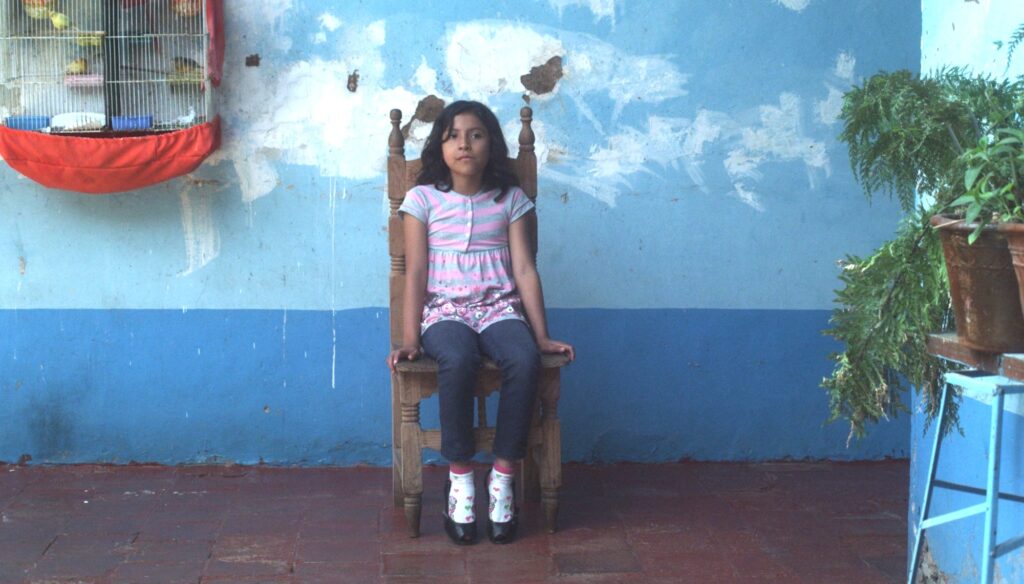
There’s a connective thread (if no outright influence, at least that I know of) between Varda’s work and that of Nicolas Pereda, a Mexican-Canadian filmmaker in his forties whose films also view the line between documentary and narrative cinema as somewhat porous. We reviewed his provocative 2020 feature Fauna here; BAMPFA will show a program of his shorts on April 6. But that’s within a series starting this Wed/20, “Nicolas Pereda Selects: Recent Films From Mexico,” in which the current Professor of Film and Media at UC Berkeley highlights others’ work, the represented peers mostly in attendance.
First up are two by another documentarian turned sometime dramatist, Tatiana Huezo. The opening night selection is last year’s The Echo, a verite portrait of a several families in the Mexican highlands; and (on Fri/22) her Prayers for the Stolen, based on Jennifer Clement’s novel about female adolescence in a village plagued by cartel violence. We covered that impressive first narrative feature here. Ditto Lila Aviles’ more recent Totem, another tale of premature childhood acquaintance with mortality. Natalia Almada’s 2016 Everything Else, a bleakly incisive Mexico City character study; and Juan Pablo Gonzalez’s 2022 Dos Estaciones , a minimalist melodrama of repression in rural Jalisco.
Ending the series on May 2 is Yulene Olaizola’s 2021 period piece Tragic Jungle, described as a “Herzogian epic” of colonialist greed and possibly-supernatural vengeance. Pereda says all these films “exemplify a kind of Mexican cinema committed to subtle formal experimentation, crafting distinctive structures and rhythms that remain unaffected by the restraints of commercial cinema.” For full program and schedule info on “Recent Films from Mexico,” go here.


